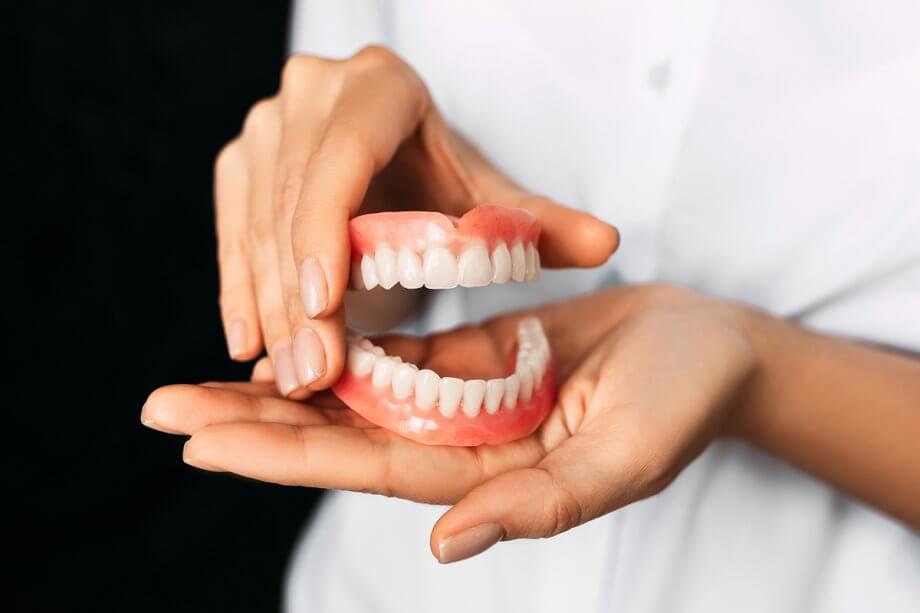If the time has come to replace missing teeth with full or partial dentures, you are in good company. According to the American Dental Association, more than 36 million Americans do not have any teeth. Approximately 90% (32.4 million) of those who do not have any teeth have dentures. All told, more than 15 million Americans have dentures made each year. So if you’re about to transition to dentures, you certainly won’t be alone. The transition to dentures can be made easier if you follow these 3 tips for getting used to dentures.
1. Recognize that Getting Used to Dentures is a Process
First things first, dentures will feel strange in your mouth when you first get them. If you ever had braces as a child or even had a crown put on a tooth, you may remember that it felt different. That’s because it is different. After living without teeth, the transition to dentures will feel very unusual.
You may experience some discomfort when you first begin wearing your dentures. There is no harm in removing your dentures from time to time, as you are adapting to them. This can give your jaw and gums a break and help you to feel more comfortable.
You may develop sores in your mouth as your gums, and the soft tissues of your mouth adjust to your new dental restorations. You may also feel like you’re producing more saliva than normal. These are common issues people experience when getting dentures and are not a cause for concern.
However, if your dentures continue to cause soreness after several weeks, schedule an appointment with your dentist for an adjustment.
2. Practice Speaking While Wearing Your New Dentures
To get used to speaking while wearing your dentures, most people find it helpful to practice speaking out loud. But you don’t have to talk your family’s ear off. You may try reading books, articles, or other materials out loud. You may also want to try singing while wearing your dentures. Singing, talking, and reading aloud will help reduce a lisp you may initially experience when you first begin wearing dentures. Speaking and singing also offer excellent exercise for the muscles in your face and jaw, which can help you get comfortable with your dentures sooner.
3. Ease into Your Favorite Foods
Learning to chew with dentures can be frustrating at first. You may want to begin with soft foods such as oatmeal, soup, applesauce, etc., for the first few days. As you get more comfortable with your dentures, move to solid foods, but cut your bites into small pieces. You should also try to chew evenly on both sides of your mouth to keep your dentures in place. Avoid extremely tough, hard, and sticky foods until you’re comfortable with wearing and caring for your dentures. You’ll be able to enjoy them eventually, but it’s often best to get used to your dentures before trying food that can be challenging to chew.
Are Dentures Right for You? Schedule a Consultation in Swansea or North Attleborough
The experienced dentists at 508Dentist two locations in Swansea and North Attleborough have years of experience in helping to restore quality of life to patients with full, partial, and implant-supported dentures. As a top-rated dental practice in Massachusetts, our team constantly pursues continuing education opportunities to ensure that all patients receive the most up-to-date treatments, techniques, and services. To schedule an appointment at 508Dentist, contact us today.

